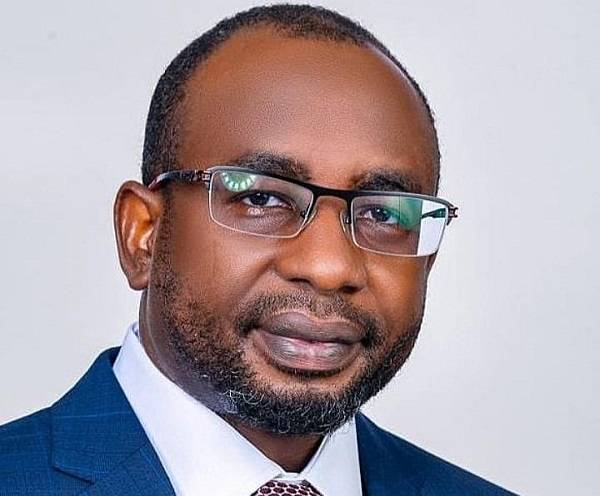
The director-general of the National Information Technology Development Agency (NITDA), Mallam. Kashifu Abdullahi has touted the ability of emerging technologies in sparking an agricultural revolution in Nigeria.
Abdullahi was speaking at the International Hybrid Symposium on Smart Agriculture 2023 organised by the Federal University Dutsinma (FUDMA), in collaboration with the Islamic World Educational, Science and Cultural Organisation in Morocco, themed “The Future of Smart Agriculture and the Role of Emerging Technologies in Achieving the SDGs”.
The event brought together experts to discuss strategies that would encourage smart agriculture and showcased the beneficiaries of the National Adopted Village for Smart Agriculture (NAVSA) programme from the Federal University Dutse.
Representing Abdullahi, his special adviser on digital transformation, Dr. Aminu Lawal highlighted the significant progress made in the field of smart farming. This innovative approach combines the power of data and computing technologies to enhance the efficiency and predictability of farming operations.
According to Abdullahi, the digital revolution has impacted every sector and industry, including agriculture. He explained that agriculture has transitioned from primitive farming to mechanised farming and is now entering the era of digital or smart farming. In smart farming, the focus is on collecting data and analysing it using computing technologies to make farm operations more efficient and predictable.
Abdullahi emphasised that digital technologies have been recognised as critical enablers of agricultural transformation, aimed at increasing food production to meet the global challenge of feeding the growing population and achieving Goal 2 of the Sustainable Development Goals (SDGs) – zero hunger. He stated, “There is a need to increase the production and profitability of farmers, improve the impact of agricultural interventions, attract youth and talent to agribusinesses, and use agriculture to diversify the economy. Digital technologies have the potential to change this narrative”.
He further added, “If agriculture is properly harnessed, and technologies and innovations are effectively introduced, the sector remains the primary driver for lifting 100 million Nigerians out of poverty in 10 years and creating numerous well-paying jobs for Nigerian youths. Digital technologies can significantly reduce information access inequalities, improve the management and sustainability of natural resources used in farming, reduce the costs of connecting sellers and buyers, and enhance knowledge sharing and access to markets.”
Abdullahi highlighted NITDA’s efforts to facilitate the digitisation of the agriculture sector through the development of the Nigeria Digital Agriculture Strategy (NDAS) in collaboration with the Federal Ministry of Agriculture and Rural Development and key stakeholders. The vision of this strategy is to make Nigeria one of the top three most food-secure countries in Africa and one of the top 20 largest exporters of high-quality agricultural produce by 2030, achieved through the use and application of digital technologies and innovations.
To further digitise the agriculture sector, address challenges, exploit opportunities and accelerate economic growth, NITDA established the National Adopted Village for Smart Agriculture (NAVSA) programme. NAVSA is a technology and innovation-driven agricultural initiative aimed at improving agriculture productivity, financing strategies, and repayment mechanisms through the introduction of closed and open wallet systems on mobile payment platforms. The initiative aims to achieve the Federal Government’s objectives of creating jobs, diversifying the economy and promoting growth. It connects various stakeholders across the agriculture value chain, positions agriculture as a viable business, attracts young people to agriculture enterprises, enables fund recovery through digital wallets, and enhances the contribution of every farm produce to GDP and economic development.
Also, Abdullahi highlighted the agency’s partnerships with universities for the implementation of NAVSA, which aim to shape and prepare a new generation of agriculturists to become smart farmers, ensuring they are ready for the future of agriculture.
In his welcome address, the vice-chancellor of the university, Prof. Armaya’u Hamisu-Bichi expressed the theme’s significance in their pursuit of innovation, efficiency and sustainability within the agricultural sector. He stressed the importance of harnessing the potential of emerging technologies in addressing challenges such as population growth and climate change. Prof. Hamisu-Bichi stated, “Smart agriculture, which integrates cutting-edge technologies such as the Internet of Things, artificial intelligence and data analytics, has the potential to revolutionise farming practices, increase productivity, optimise resource management, and enhance overall efficiency. Through collective efforts and comprehensive strategies, we can achieve a delicate equilibrium, fostering harmonious coexistence between agricultural production and environmental preservation.”
Abdullahi’s speech at the International Hybrid Symposium on Smart Agriculture 2023 highlighted the immense potential of emerging technologies in revolutionising Nigeria’s agricultural sector. By harnessing the power of digital technologies, the country can transform farming practices, increase productivity, create jobs and contribute to sustainable development. With the continued efforts of organisations like NITDA and collaborations with key stakeholders, the vision of a prosperous and technology-driven agricultural sector in Nigeria can become a reality.


